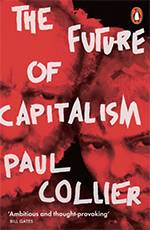Dalia Marin
Says More…
This week, Project Syndicate catches up with Dalia Marin, Professor of Economics at the University of Munich and a research fellow at the Centre for Economic Policy Research (CEPR).
Project Syndicate: "The digital economy,” you observed in 2017, “is carving out new divides between capital and labor” by allowing a few firms to capture an increasingly large market share. Two years later, leading US Democrats seeking to challenge President Donald Trump in the 2020 election are calling for major tech companies to be broken up for precisely this reason. What’s your take on this approach?
Dalia Marin: Breaking up major tech companies could address one problem: the excessive power that some tech firms have amassed. By suppressing competition – including obstructing market entry by new players – these firms have undermined economic dynamism, innovation, and productivity growth.
But breaking up these companies will not necessarily resolve the problem of labor’s declining share of GDP. Research suggests that this trend – which began in the 1980s – is driven largely by digital technology’s network effects, which have enabled tech giants to amass enormous power, but it would persist even if more smaller firms were competing.
Marin recommends
We ask all our Say More contributors to tell our readers about a few books that have impressed them recently. Here are Marin's picks:
-

The Future of Capitalism
by Paul Collier
This book analyzes the failures of contemporary capitalism, anger and anxiety over which are tearing the fabric of our societies. In Collier’s view, the deepest divides are between more and less educated, and between burgeoning metropolises and declining rural provinces.
From the PS Archive
From 2014
Marin suggested that skilled workers would become increasingly unable to compete with AI. Read the commentary.
From 2018
Marin answered questions about Germany’s unique brand of political populism. Listen to the podcast.
Around the web
Marin explains how international trade has reshaped the organization of firms. Watch the video.
In a VoxEU eBook, Marin explores what enabled Germany’s exceptional transformation from the sick man of Europe in the 1990s into the economic powerhouse that it is today. Read the eBook.
